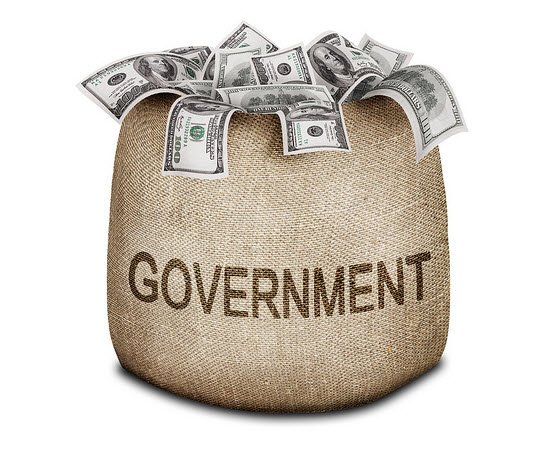
The U.S. Senate, this past week, blocked an attempt to advance an amendment to the Constitution for the government to further restrict the funding of political campaigns.
“We have had in this country a flood of very, very dark money coming into this nation’s political system which is threatening to tear apart the fabric of American democracy,” Senate Majority Leader Harry Reid said prior to the amendment’s defeat.
After the defeat Reid said, “Senate Democrats want a government that works for all Americans — not just the richest few. Today, Senate Republicans clearly showed that they would rather sideline hardworking families in order to protect the Koch brothers [billionaires who contribute to Republican campaigns] and other radical interests that are working to fix our elections and buy our democracy,” Reid said after the vote.
“The proposed amendment would restrict the most important speech the First Amendment protects, core political speech,” said Sen. Chuck Grassley (R-Iowa) on Wednesday. “It’s hard to imagine what would be more radical than the Congress passing a constitutional amendment to overturn a dozen Supreme Court decisions that have protected individual rights. Free speech would be dramatically curtailed.” [Sources: politico.com 9/11/14, businessweek.com 9/9/14]
The strongest proponents of these measures are partisan progressive Democrats. These Democrats are angry and outraged when certain billionaires or millionaires contribute lots of money to their political opponents — especially their most principled opponents, the ones in favor of drastically cutting the budget and the power of government. They call this “radical” and therefore bad; and they imply or claim that people should not be permitted to give “too much” money to them.
They do not propose restricting millionaire and billionaire campaign donors who support progressive causes, ones that advance socialized medicine, higher taxes, more government regulations and general exapansion of government control over the economy. Donations to these sorts of candidates have obviously been effective, since these are the types of candidates (even in the Republican Party, to some extent) who dominate the government. Campaign laws, like most laws today, are not objective. They give the government power to use its discretion in determining who is violating those laws, and who is not. Rest assured that Hollywood celebrities and rich Democrats will not be impeded in their quest to donate; but the Koch Brothers (the ones who support limited government) will be.
Reid’s use of the phrase “dark money” is highly significant. These politicians used to disingenuously rage against “money in politics.” They did so while accepting hard-core leftist George Soros’ millions, as well as the millions of others who support their policies. It was hypocritical and openly dishonest. But they got away with it. After all, who could be against “money in politics”?
But in his use of the phrase “dark money,” Harry Reid drops the pretense. He’s all but saying it: If billionaires like Charles and David Koch give lots of money to advance the cause of limited government, individual rights and hands off capitalism, they’re “radical and dark.” The implication, obviously, is that there’s such a thing as “light money.” This, presumably, refers to the millions or billions given to politicians who support Obama’s policies, or any other policies they happen to like.
The problem with campaign corruption isn’t money. The problem is that government has the power allowing politicians to be bought and sold, in the first place.
If government withdrew from the economy, and only got involved in matters of contract violations, theft and fraud, there would be no possibility of claiming “dark” or light money. The only money in circulation would be money that exchanged hands privately, voluntarily and — because it’s for-profit businesses that make wealth — meets the demands and wants of customers.
Truly progressive policies would consist of systematically removing government’s role in the economy, and leaving it to private consumers, voting constantly with their dollars and voluntary choices. In a totally free market, only customers decide which businesses succeed or fail. It’s in a mixed economy, such as ours, that amoral twits like Harry Reid, and frankly many of the Republicans in Congress, get to decide who has the better chance of winning or losing.
A free market, of course, would take the power out of the hands of politicians like Harry Reid. It would also take the power away from his Republican colleagues, people who have likewise been in power for decades and aren’t about to let it go.
If we ever live to see a day when politicians of any political party get to pass laws against “dark money,” then you can be sure it’s the beginning of dictatorship in America. The beginning of dictatorship is censorship. Without freedom of speech, thoughts, ideas and expression, there’s no basis for changing anything (radically or otherwise). The powers that be in the Washington establishment know this, and they’re not about to stand idly by and let people discuss ideas that might take away even some of their power.
They might as well be saying, “You there. I don’t like your ideas. Consequently, I don’t like you giving lots of money to a candidate whose ideas about government I don’t like. Therefore, I will propose a law outlawing your right to give that candidate money.” You might as well be outlawing or restricting “dark” publishers or websites. Will that be next?
If it’s wrong for a billionaire — or only certain billionaires — to give money to the candidates of their choice, then it’s wrong for everyone, in principle. If you sincerely wish to get corrupt money out of government, there’s only one way: Get the government out of the business of spending so much of it.
Be sure to “friend” Dr. Hurd on Facebook. Search under “Michael Hurd” (Rehoboth Beach DE). Get up-to-the-minute postings, recommended articles and links, and engage in back-and-forth discussion with Dr. Hurd on topics of interest. Also follow Dr. Hurd on Twitter at @MichaelJHurd1
